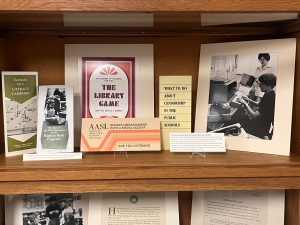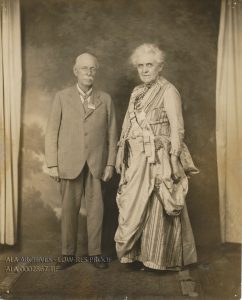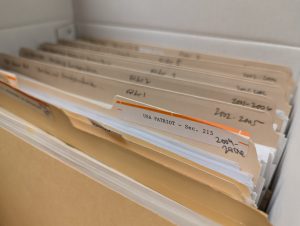
The ALA Archives has an exhibit this month curated by Ella McDonald in the Center for Children’s Books at the School of Information Sciences. The exhibit opens on October 4th for the Association of Illinois School Library Educators (AISLE) conference and explores the history of school librarians and the role of the American Association of School Librarians (AASL), a division of the American Library Association. You can see a preview of the exhibit here but make sure to stop by the Center for Children’s Books to view the exhibit. You can also visit the American Library Association Archives to find more materials about school librarians in the United States. Continue reading “Exhibit: ALA and School Librarians”







